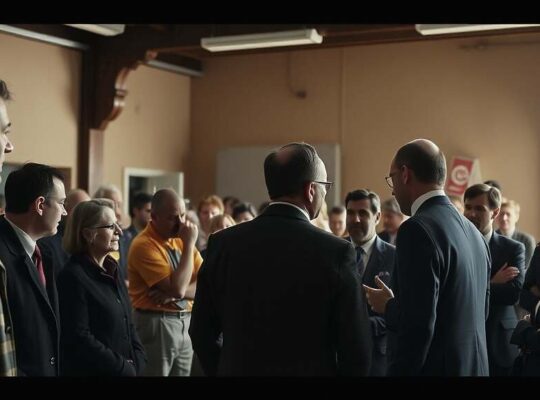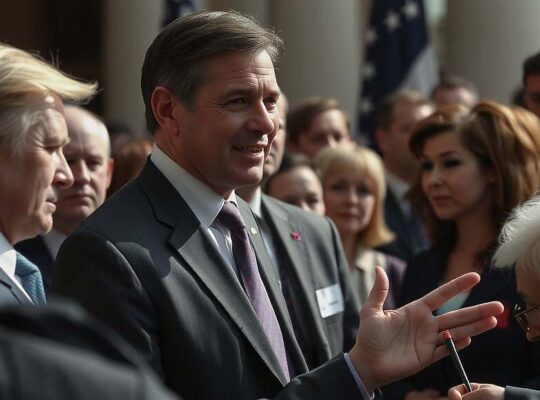Internal divisions are intensifying within the Christian Democratic Union (CDU) as a faction advocating for strategic engagement with the Alternative for Germany (AfD) encounters staunch opposition. Schleswig-Holstein’s Minister President, Daniel Günther, vehemently refuted any suggestion of softening the party’s stance, asserting in an interview with “Stern” magazine, “We have a clear position regarding the AfD, which will not change”. Günther emphasized the fundamental incompatibility between the two parties, stating, “There is no common value base, no overlap and no majority with the AfD.
The insistence on maintaining a firm distance reflects a deepening concern over the AfD’s increasingly radical rhetoric and its demonstrable efforts to undermine democratic institutions and public trust. Günther accused the AfD of promoting “division, incitement and calling into question our liberal democratic order” a sentiment echoed by CDU’s Deputy Chairwoman Karin Prien.
Prien described the AfD as “the exact opposite of bourgeois” and characterized elements within the party as increasingly “right-wing extremist”. She firmly ruled out the possibility of forming “bourgeois majorities” in parliament with the AfD, underscoring the ideological chasm separating the two parties.
While acknowledging that some voters of the AfD may hold views traditionally associated with the center-right, Prien stressed the responsibility of not only the CDU but also the Social Democrats (SPD) and the Greens in rebuilding trust and addressing the underlying concerns that might drive individuals to support a party perceived as antagonistic to core democratic principles.
The CDU’s leadership is scheduled to convene this Sunday to deliberate on its strategy regarding the AfD, a discussion ignited by figures like former General Secretary Peter Tauber, who has publicly urged a re-evaluation of the party’s approach. The internal debate underscores the precarious political landscape within Germany and the ongoing challenge for mainstream parties to navigate the complexities of addressing voter anxieties without compromising democratic values. The debate also highlights a risk: that any perceived softening towards the AfD could be construed as validation of its anti-establishment narratives and further erode confidence in traditional political discourse.












